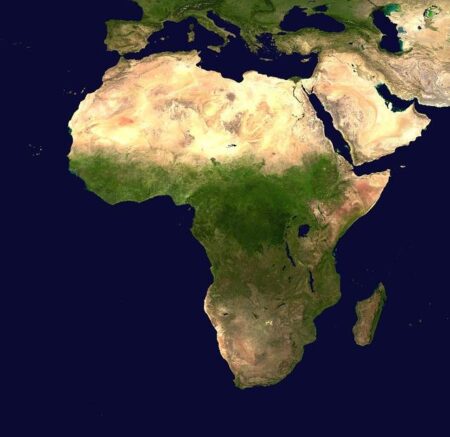Russia Strengthens Its Presence in the Indian Ocean with New Embassy in the Comoros Islands
In a strategic maneuver highlighting its growing focus on Asia and Africa, Russia has announced the establishment of an embassy in the Comoros Islands, a small but geopolitically significant archipelago off Africa’s eastern coastline. This initiative is part of Moscow’s broader ambition to deepen diplomatic relations and expand its influence within the Indian Ocean corridor-a region increasingly pivotal for global trade routes and security.
Expanding Diplomatic Horizons: Russia’s New Chapter in Comoros
The inauguration of Russia’s diplomatic mission in the Comoros marks a notable milestone reflecting Moscow’s intent to diversify its international partnerships beyond traditional spheres. This move aligns with Russia’s ongoing strategy to pivot towards Asia-Pacific and African nations as it seeks alternatives amid strained relations with Western powers.
The embassy is expected to serve as a catalyst for several key areas of cooperation:
- Economic Engagement: Enhancing bilateral trade and investment, particularly targeting sectors such as renewable energy, sustainable agriculture, and eco-tourism.
- Cultural Diplomacy: Launching exchange programs that promote educational collaboration, arts initiatives, and people-to-people connections between Russian and Comorian communities.
- Security Partnerships: Collaborating on maritime security efforts aimed at safeguarding shipping lanes from piracy threats while strengthening regional stability.
This development also mirrors wider geopolitical shifts where Russia aims to reassert itself by forging new alliances across underrepresented regions. The strategic location of the Comoros-nestled between Africa and Asia-offers Moscow an advantageous foothold to counterbalance Western influence along critical maritime corridors.
A Closer Look at Strategic Alliances: Implications for Regional Power Dynamics
The decision to open an embassy signals more than just symbolic diplomacy; it reflects Moscow’s calculated effort to build durable partnerships grounded in mutual interests across economic growth, energy cooperation, agricultural innovation, and security collaboration. As global power balances evolve amidst rising multipolarity, these alliances could reshape regional dynamics significantly.
| Sectors | Areas for Collaboration |
|---|---|
| Energy | Pursuit of joint ventures focusing on solar power projects alongside exploration of offshore oil reserves near East African waters. |
| Agriculture | Sharing expertise on climate-resilient farming techniques tailored for island ecosystems vulnerable to environmental changes. |
| Security | Cohesive efforts against maritime piracy through intelligence sharing and coordinated naval patrols along vital shipping routes connecting Asia-Africa-Europe trade networks. |
Moscow’s engagement with countries like the Comoros exemplifies its broader ambition: cultivating a network of partners that can collectively challenge Western hegemony while unlocking new economic opportunities within emerging markets across Africa-Asia corridors. Analysts anticipate this approach will gradually shift influence patterns throughout these strategically important regions over coming years.
Nurturing Bilateral Relations: Strategies for Deepening Cooperation Between Russia & The Comoros Islands
The launch of this diplomatic mission opens avenues not only for political dialogue but also practical collaborations designed to benefit both nations economically and culturally. To maximize potential gains from this partnership amid evolving geopolitical realities, several targeted strategies are recommended:
- Pursue Joint Economic Ventures: Develop cooperative projects leveraging local natural assets such as marine biodiversity tourism or organic spice cultivation-industries where Russian investment can stimulate sustainable growth within the islands’ economy.
- < strong > Institutionalize Regular Diplomatic Exchanges : Establish consistent high-level meetings facilitating transparent communication channels addressing shared priorities including climate adaptation policies or infrastructure development support .
- < strong > Expand Educational & Cultural Programs : Create scholarship schemes enabling students from both countries access cross-cultural learning experiences , fostering long-term interpersonal ties essential for enduring partnerships .
| Focus Area | Expected Outcomes | ||
|---|---|---|---|
| Tourism Enhancement | Stimulates local employment , promotes cultural heritage appreciation < tr >< td >Agricultural Innovation | Improves food sovereignty , encourages environmentally friendly practices < tr >< td >Technology Exchange | Accelerates modernization , supports diversification beyond traditional sectors                                                                                                                                                            Drive innovation capacity , foster industrial growth locally
|
Tapping into established business networks will be crucial in attracting private sector investments from Russian enterprises eager to capitalize on emerging market prospects offered by the islands’ strategic position along key maritime routes connecting continents.
By adopting these approaches thoughtfully aligned with mutual interests,
both nations stand poised not only
to navigate complex geopolitical currents effectively but also build resilient socio-economic bonds that endure beyond immediate political objectives.
A Forward-Looking Perspective: What Lies Ahead?
Moscow’s establishment of an embassy in the Comoros Islands represents more than just geographic expansion-it signals a recalibration toward engaging dynamic economies situated at crossroads between continents. This move underscores how emerging island states are gaining prominence within larger global strategies shaped by shifting alliances.
As Russia deepens ties through increased economic cooperation,
cultural exchanges,
and collaborative ventures spanning tourism,
energy,
and fisheries management,
the world will keenly observe how this relationship evolves amid intensifying competition among major powers vying for influence across Indo-Pacific domains.
Ultimately,
this development may herald new paradigms defining international diplomacy where smaller yet strategically located nations become pivotal actors shaping future geopolitical landscapes.







